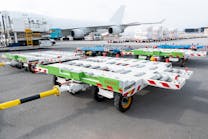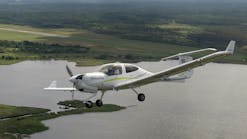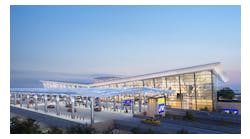Pilot Training Network Will Relocate Practical Flight Training to Vero Beach, Florida
Vero Beach, FL, November 11, 2009 – Starting in 2010, Pilot Training Network, the wholly-owned subsidiary of Lufthansa Flight Training, GmbH, will train its students according to a new concept that will emphasize more efficiency and higher quality in their training. Both the FlightCrew Academy and InterCockpit flying schools, combined under the Pilot Training Network umbrella, will start teaching the practical part of Airline Transport Pilot License training for airline pilots in Vero Beach, Florida, and Rostock-Laage, Germany next year. This corporate decision to relocate from the Croatian city of Zadar is a result of the growing number of flying school students as well as increased infrastructural and operational needs.
In spite of the economic crisis, Pilot Training Network has experienced significant student growth. Last year, 151 new airline pilot trainees started in both InterCockpit and FlightCrew Academy flying schools. There are now three times more pilot trainees as in the year the company was founded – a positive trend that continues.
“The infrastructure of our current site would have been pushed to its limits within the foreseeable future,” explains Wolfgang Raebiger, General Manager of Pilot Training Network and an airline pilot himself. “We have therefore decided to move our practical flying phases to Germany and the U.S. to restructure our training.”
The first part of flight training, called VFR training for visual flight rules, will be taught at FlightSafety Academy at the Vero Beach Municipal Airport. Ideal meteorological conditions for this initial flight stage, short paths, very well equipped training rooms and a modern training fleet ensure effective, high-quality training. With FlightSafety, Pilot Training Network has not only gained a partner with decades of experience, but also an infrastructure geared for growth.
FlightSafety Academy is located in Vero Beach, Florida. It helps to prepare students to fly advanced technology aircraft safely and efficiently in an increasingly complex environment. Students have access to FlightSafety’s large fleet of single and multi engine aircraft, full flight simulators, and advanced training devices. The Academy has onsite accommodations for up to 350 people and a full compliment of classrooms, briefing rooms and aircraft maintenance hangars.
“This reorganization invests in a smoother training operation, which can now be ensured in spite of the much greater number of students,“ explains Wolfgang Raebiger.
For more information, visit www.pilottraining-network.de



